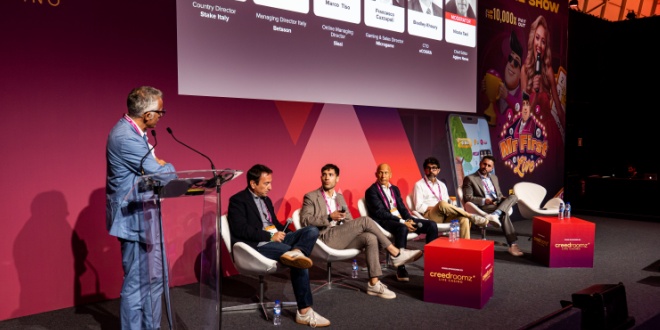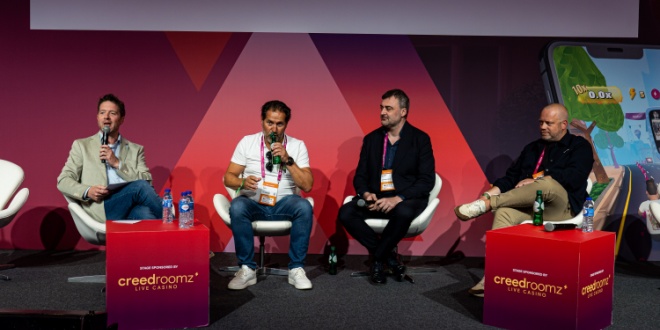Tax no killer blow for gambling but a deep cut for leadership
Halloween is nearly upon us, but for the leadership of Europe’s biggest gambling firms, it is not ghouls in the night disturbing their sleep but someone with far greater consequences… The taxman.
Delegates who attended the SBC Summit Lisbon would have heard the topic of tax talked about extensively as the subject matter dominating all discussions of the industry and its outlook.
Which markets have the worst tax framework to deal with? What impact will taxation have on growth? And perhaps most importantly of all, what can operators do to soothe impacts and adjustments.
“We tried, we failed”
France raised its taxes earlier this year, raising the tax on gross gaming revenue (GGR) from 54.9% to 59.3%, while the Netherlands followed by increasing its rate from 30.5% to 37.8% by 2026.
At home, the UK is also seeing a heated debate around tax, with the Treasury evaluating whether to merge the three types of gaming duty into one single 21% rate – considered the least damaging outcome against proposals by think tanks who endorse a doubling in GGR taxes to 50%.
“This is the big debate,” said Vlad Kaltenieks, CEO of Irish-based BoyleSports, which has been significantly expanding its presence in the UK’s highstreet and online. In doing so BoyleSports is setting itself up for a deep exposure and liability to the tax raises potentially on the horizon in next month’s budget.
“I look at it from the overall social and economic impact. My real desire is to build a sustainable environment, and what does a sustainable environment look like?
“It’s an environment where companies can continue to grow, continue to innovate, continue to invest in technology and employment – therefore building that ecosystem in order for the economy to develop and flourish.”
Making the case for Europe’s assembled betting industries are the trade associations be it the UK”s BGC, Ireland’s IBA, Netherlands’ NOGA and VNLOK, France’s AFJEL, and the pan-European EGBA, to name a few.
These trade bodies have been particularly vocal in recent months, understandably. France’s operators met with the government to protest tax raise the week it occurred, while the UK’s BGC has been actively campaigning across politics and media to make its case.
The industry’s warnings to the government are familiar to many, and were re-raised again on the conference floor at Lisbon. Pascal Chaffard, CFO and Strategy Officer at FDJ United, reflected on the tax raises in France from earlier this year, reiterating that ‘for the government, it’s not really a good decision when they look at the bottom line’.
“We have to convince everybody to do that,” he said, referring to the industry’s attempts to dissuade the government from hefty tax raises. “ We have tried to convince them. We have failed apparently, short term.”
Italy keeps tax man happy
There is simply no hiding, taxes have to be paid – public funds need to come from somewhere, and the mulit-billion euro gambling sector should be and is a big contributor to government coffers.
Betting firms in the UK, Netherlands, France and elsewhere are understandably concerned about the impact taxation may have on their bottom lines. But is it doom and gloom across all markets?
In Italy, “the tax man, as always, is the is the happiest man of this business,” quipped
Nicola Tani, Editor-in-Chief at AgiproNews, leading a discussion on the future of the Italian market, which is set to operate under a new regulatory framework from next month.
This new-look Italian market will see 46 companies operate 52 licensed betting sites, with newly introduced rules restricting each company to one website per licence – in doing so significantly cutting down the number of betting sites in Italy.
The government has raised over €365m in licence fees alone, surpassing the Ministry of Economy‘s (MEF) initial target of €300m–€350m. As Tani put it, Italy is a ‘fastly growing market, with double digit growth over the last few years’.

So what is Italy’s relationship with the taxman like? In comparison to the Netherlands and UK, seems to be far more positive and the UK hasn’t even implemented any major tax changes yet, at least not for another six weeks.
“The taxation is a fair taxation,” said Marco Tiso, Managing Director of Sisal. “Our regulator knows that if they increase the taxation, the illegal market grows. This taxation will probably remain the same for these nine years, and there is still room for growth.”
Taxation is not the main concern for operators in Italy, with companies more bothered about marketing themselves and standing out in what is set to be a highly competitive market – and one which carries a number of restrictions and marketing and sponsorship.
In the words of Fabio Bufalini, Stake’s Country Director for Italy: “Stake is a huge brand globally, but in Italy we are starting from scratch, and honestly it will not be easy because there is an advertising ban in Italy and it’s not easy for a newcomer to make operations and make the right action to start a brand properly.”
The new tender is ‘changing a lot’, however, in Bufalini’s view, laying the foundations for companies to become ‘more credible’ to consumers – the recent limitation on website numbers may be indicative of this.
It seems then that in a sea of tax raises and difficult regulatory transitions in the UK, Netherlands, France and Germany, to name some of Europe’s most notable examples, Italy is an island of hope. As Tani summarised it at Lisbon, Italy is “a growing market, good health, very well regulated, so it’s in a very attractive market”.
Dutch tax trauma
In the seemingly never-ending discussion about taxation in European gambling right now, debate always returns to the Netherlands, where taxes have proven a costly thorn in the industry’s side.
The Dutch online betting market was re-launched under the KOA Act in October 2021 and over the years has skyrocketed in value, with total iGaming GGR coming in at €607m in H2 2024 and €600m in H1 2025.
This has come with hefty taxation, however, as the government clearly sees the valuable sector as a solid source of state income to alleviate its budgetary problems. The current rate is 34.2% of GGR, while another increase to 37.8% is set for 2025,
Coupled with extensive restrictions on advertising, the tax rates means the Netherlands is now regarded as one of the trickiest to crack in Western Europe.
“The push through is in line with expectations, because what’s happening now has been explained a year ago, and then they pushed it through anyway, so there’s no new insight,” said Eric Olders, CEO and Chairman of the Board for JVH Gaming & entertainment group, operator of Jack’s Casino, in Lisbon.
“The only insight is that there is a budget gap as foreseen, and they put it on the side, and actually there’s a little good news, if you look at it, because they could have been even more stupid and increased the tax even further to bridge the gap.
“They said, ‘well we’ll just do what we said,’ so it’s maybe a little positive there, in that respect, although it’s a shame that you have taxes, including levy, that’s close to 40% of GGR – that’s insane.”

It may sound cynical to some, but in the various conversations about industry taxation at the moment, the Netherlands routinely comes up as an example of what not to do. The reason for this is the black market, though if a parliamentary hearing in the UK this week is anything to go by, politicians seem to be going numb to this argument.
At Lisbon, Leon Voogt, Managing Director of Entain’s Dutch-facing brand BetCity, asserted that heavier tax rates ‘hurt us as legal operators being competitive to illegal operators’.
“It hurts us in our bonus budgets, our promotional budgets,” he added. “It hurts us innovation, to keep up with the illegal operators where certainly there is innovation and they do invest in our product, et cetera.
“It all contributes to an environment whereby the level playing field is gone, and I think that that’s my biggest worry – whether the tax percentage is at 21% or 24%, is less of my concern.”
No Tea Party…
Taxation has the potential to have huge, far reaching impacts, often way beyond what the politicians deciding it may intend. In 1776 taxation led to a series of events which saw the creation of the United States of America, after all.
In the grand scheme of things of course the impact on the European betting industry pales in comparison to the creation of a country which 200 years later is the world’s largest economy, but I’m sure readers catch my point.
In some cases like the UK and Ireland, the future of the entire retail betting sector could hinge on how the industry is taxed, according to some major players in the space. In short, how the industry is taxed could change the way an entire generation of consumers engage with it.
Summarising an attitude felt by many, BoyleSports’ Kaltenieks asserted that gaming tax regimes should have one thing in mind – the sustainability of the sector and its economic contribution.
“If the tax regime is very, very beneficial, and it’s very clear in terms of how the companies need to operate within that, that could be very productive and stimulating to creating that outcome.
“If it’s becoming more restrictive, we can see that it leads to uncertainty and the problems within the economy and the wider markets.”
No Comments